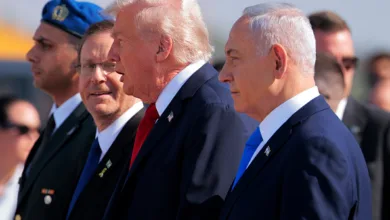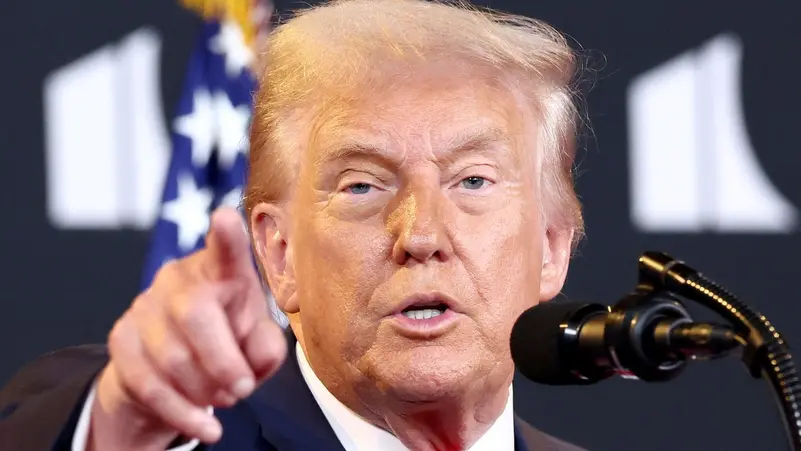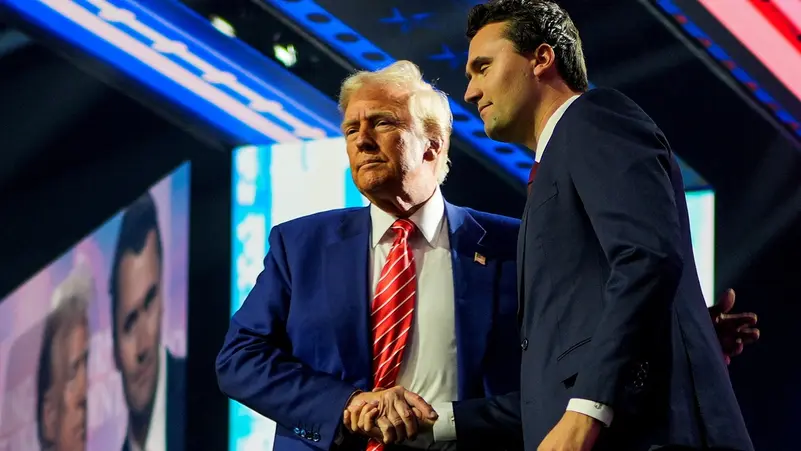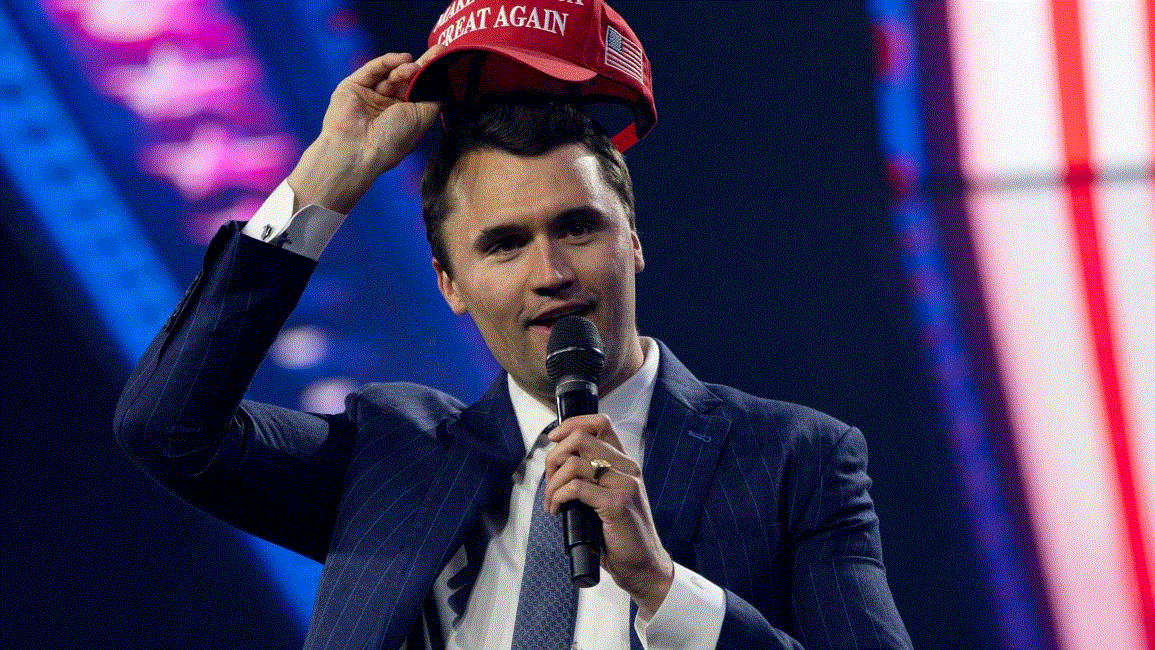Trump Expresses Concern Over Russia’s Largest Airstrike on Ukraine
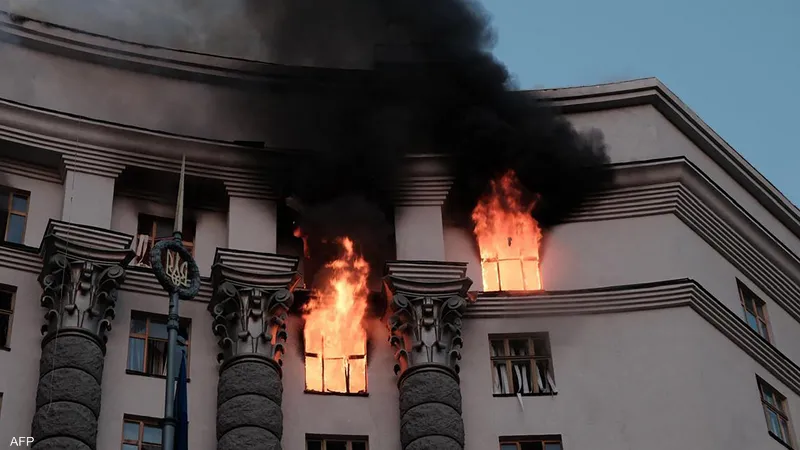
US President Donald Trump expressed deep concern on Sunday over Russia’s latest and largest airstrike on Ukraine. The offensive, which involved over 800 drones and missiles, resulted in at least five casualties, including two in Kyiv. Trump emphasized the urgency of addressing the situation while maintaining pressure on Russia through diplomatic and economic measures (airstrike).
Trump’s Immediate Reaction
When asked about the attacks early Sunday, Trump told reporters: “I am not happy. I am not happy with the situation at all.” He further added, “We will resolve the situation very soon.” The President’s statement reflects growing concern over Russia’s escalation and its impact on Ukrainian civilians and infrastructure (situation).
Scale and Impact of the Attack
Sunday’s airstrike marked the largest Russian offensive on Ukraine to date, involving over 800 drones and missiles. The assault caused significant damage to key facilities and resulted in casualties in Kyiv and surrounding areas. Analysts note that targeting urban centers and critical plant facilities demonstrates a deliberate effort to disrupt Ukraine’s energy and civilian infrastructure (plant).
The extensive use of drones and missiles has challenged Ukraine’s defense systems, highlighting vulnerabilities in airspace monitoring and early warning capabilities. Emergency teams are actively engaged in damage assessment and restoration efforts to mitigate further disruption (drones).
Diplomatic Engagements
Trump indicated that European leaders would visit the United States on Monday and Tuesday to discuss ways to end the Russian-Ukrainian war. While the specific leaders were not identified, the visits aim to strengthen coordination on sanctions, humanitarian support, and diplomatic pressure against Russia (leaders).
The President also mentioned that he would soon engage in direct discussions with Russian President Vladimir Putin to address the escalating conflict. Analysts suggest that these talks could focus on reducing hostilities, securing humanitarian corridors, and exploring ceasefire options (Putin).
Potential Second Phase of Sanctions
Trump expressed readiness to impose a second phase of sanctions on Russia if necessary. When questioned about further economic measures, he affirmed his willingness to increase pressure without providing specific details. Economists highlight that targeted sanctions could impact Russian energy exports and financial transactions, further influencing the ongoing conflict (sanctions).
Humanitarian Concerns
The escalation has significant humanitarian implications. Power outages, infrastructure damage, and casualties have created urgent needs for aid and emergency assistance. International organizations are coordinating with Ukraine to provide medical supplies, heating solutions, and essential services to affected populations. Civilian resilience and rapid response are critical in minimizing long-term consequences (humanitarian).
Strategic and Political Significance
Russia’s large-scale airstrike underscores the strategic importance of targeting critical infrastructure. Analysts point out that disrupting grid systems and energy production can weaken governmental authority and public morale. Trump’s statements emphasize the necessity of international cooperation and enhanced defensive measures to safeguard key facilities (grid).
Political observers also note that Trump’s proactive approach sends a message to both allies and adversaries, demonstrating US commitment to supporting Ukraine while exploring diplomatic solutions. The ongoing dialogue with European partners aims to maintain pressure on Russia and encourage restraint in further military escalation (diplomacy).
Analysis of International Response
The global community has reacted with concern to Russia’s latest offensive. International leaders have emphasized the need to protect civilians, maintain energy infrastructure, and support humanitarian efforts. Coordinated sanctions, strategic aid, and diplomatic pressure are seen as critical tools in preventing further escalation and ensuring compliance with international norms (international).
President Trump’s criticism of Russia’s largest airstrike reflects deep concern over escalating hostilities and their consequences for Ukraine. Diplomatic engagement, potential sanctions, and support for civilian infrastructure are key strategies to mitigate the crisis. The situation highlights the strategic and humanitarian importance of protecting energy facilities, urban centers, and critical services during times of conflict. Continuous coordination between the US, European allies, and international organizations is essential to achieve stability and prevent further escalation. Young voters worldwide are closely watching these developments, which could shape international political discourse and influence future policy decisions (voters).
